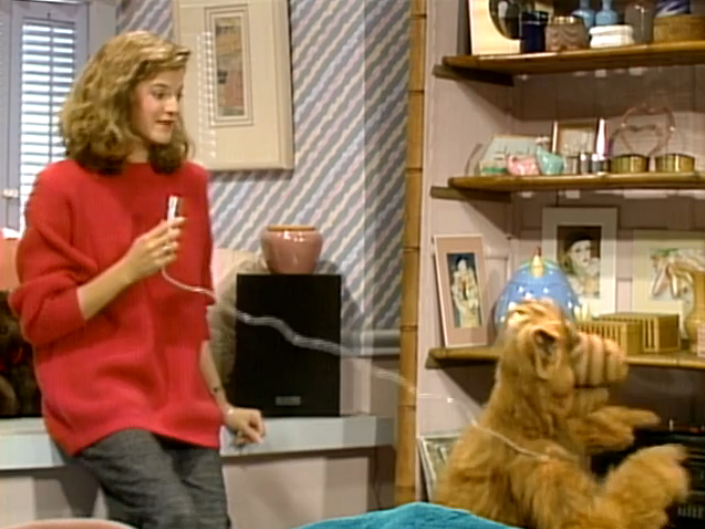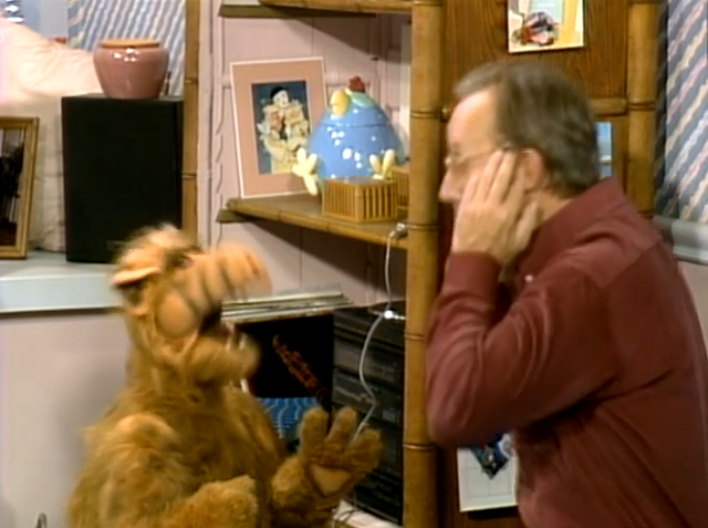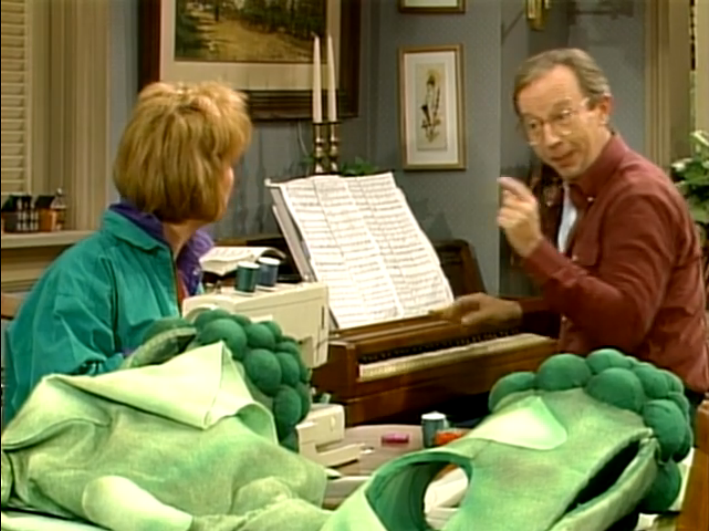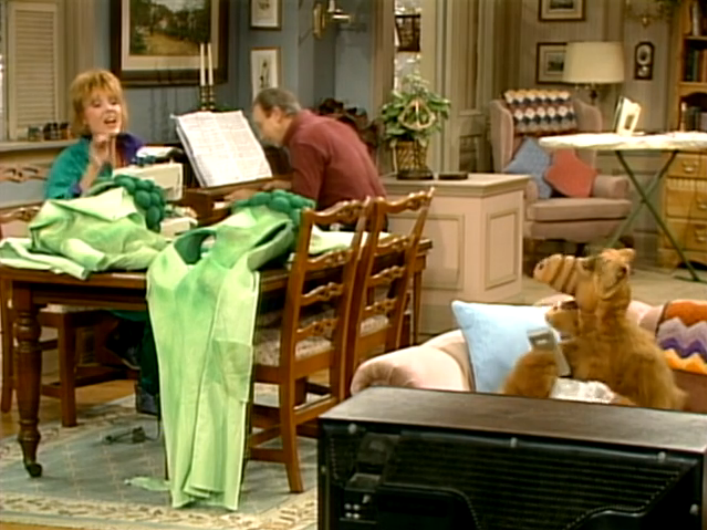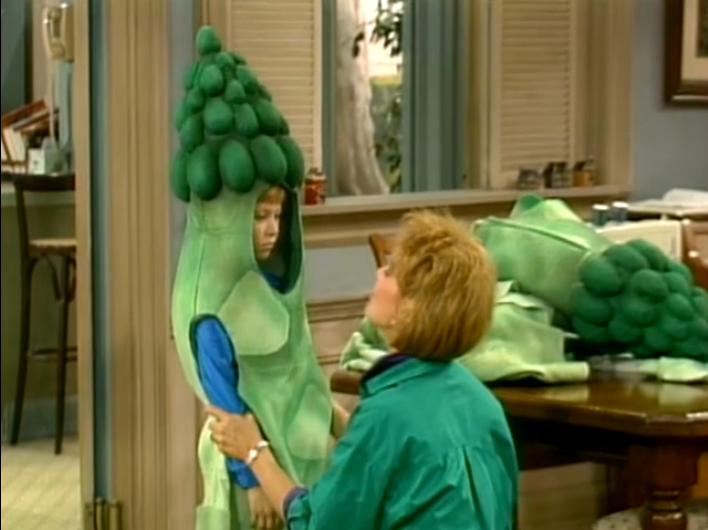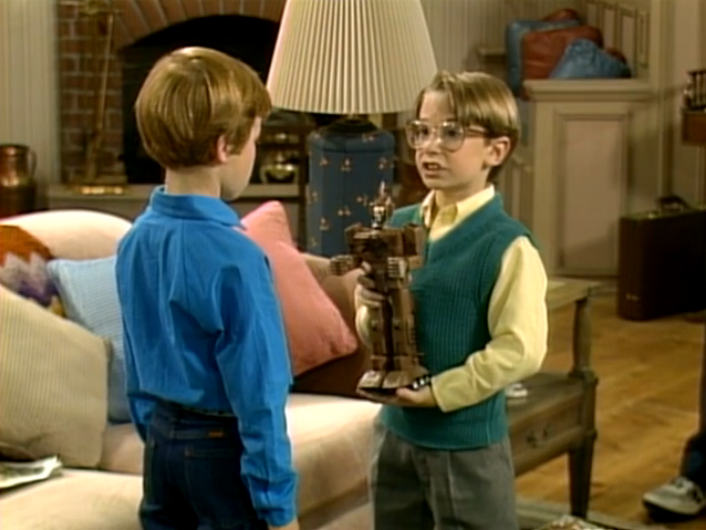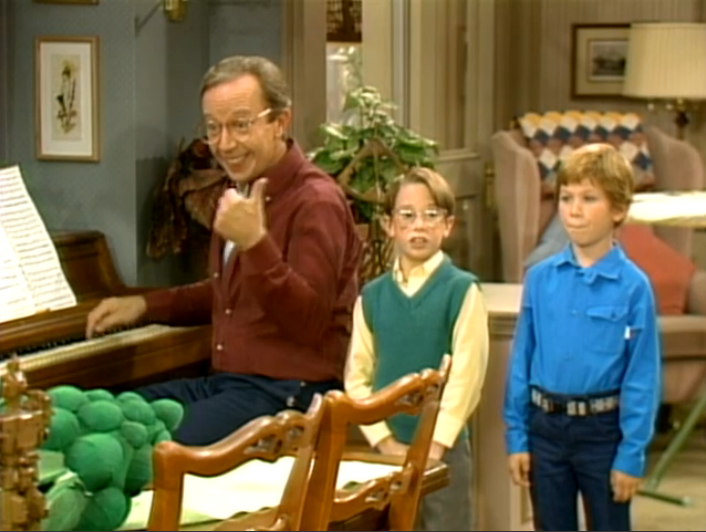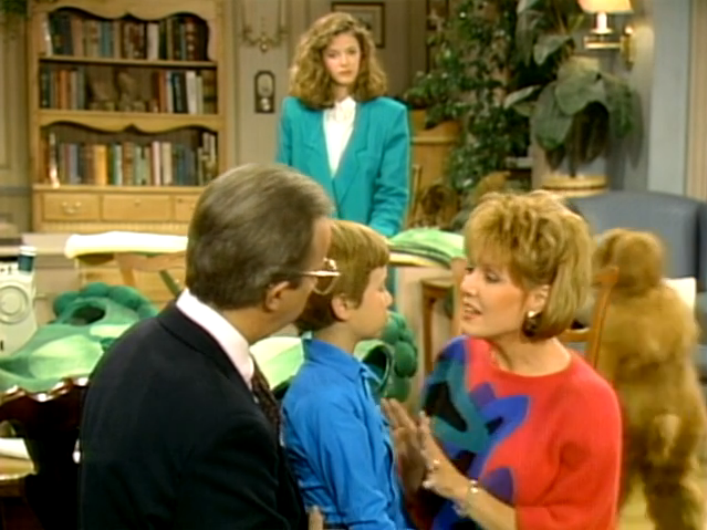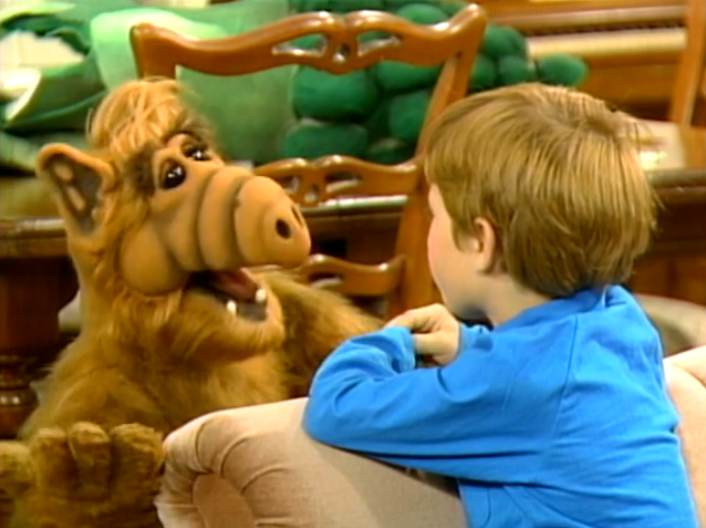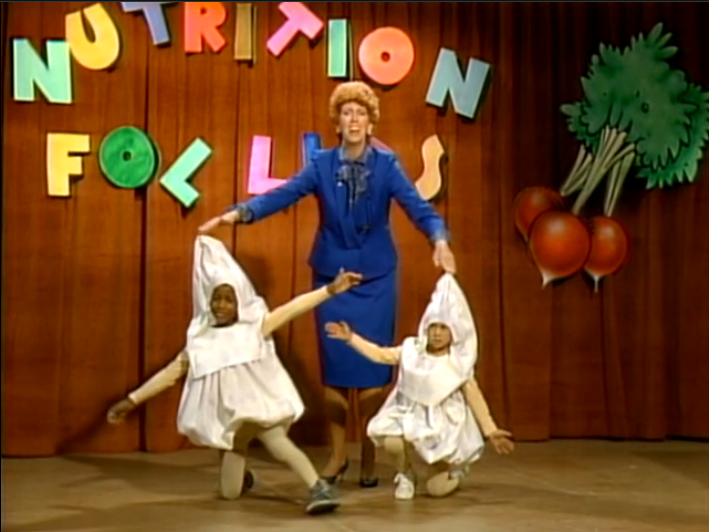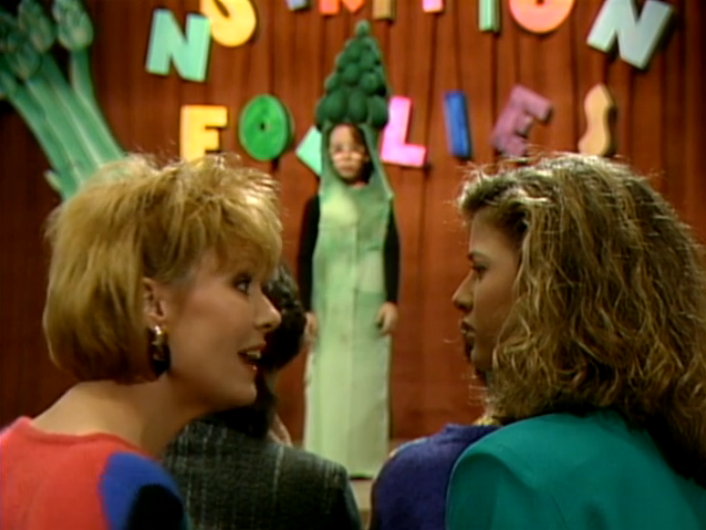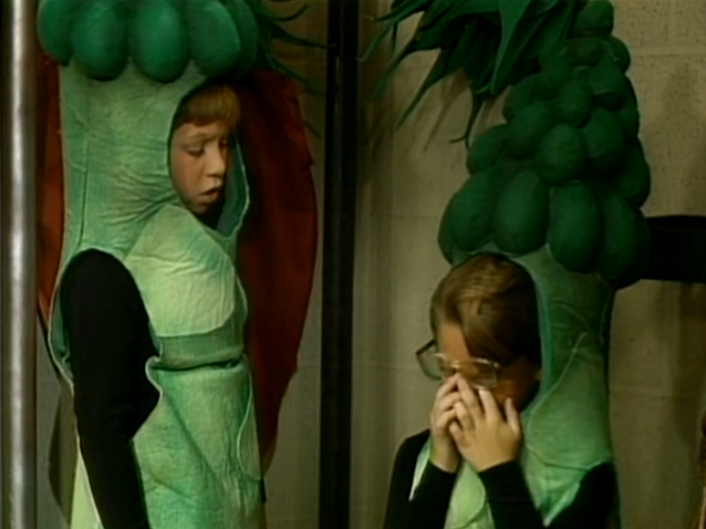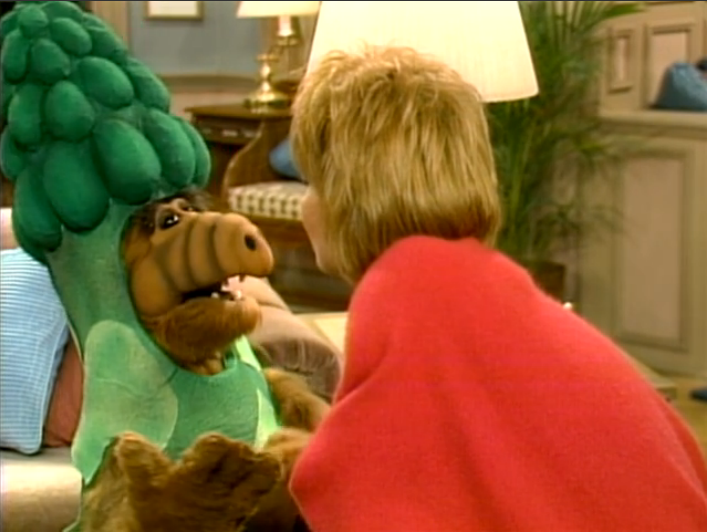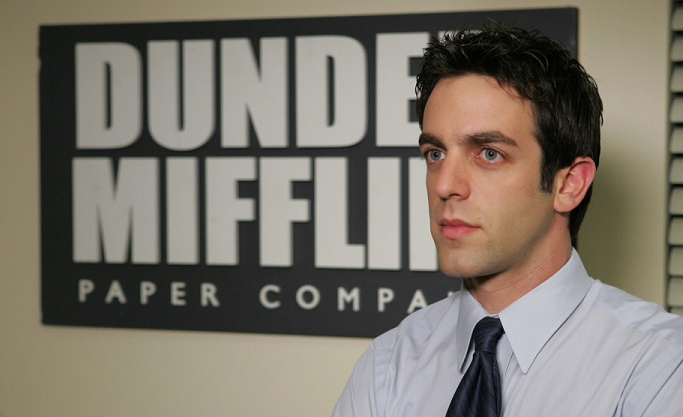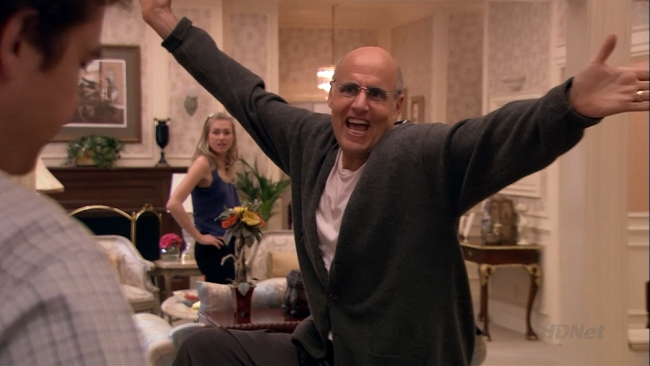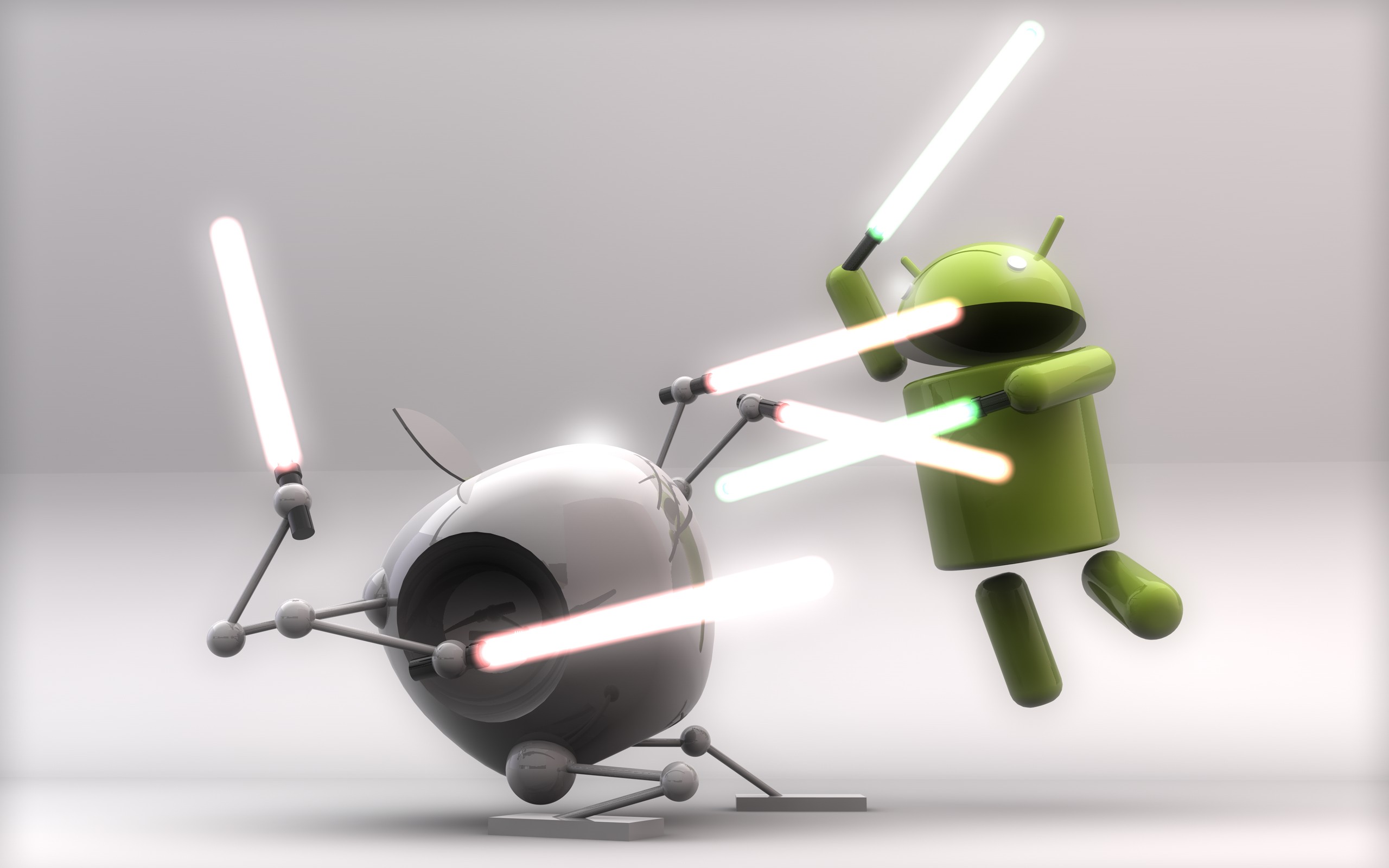Ladies and gentlemen…start the countdown. As of now, we have only five episodes left in the first season of ALF! Hooray! And yes, yes, I know I will have 74 more episodes to slug through after that, but I’m still looking forward to finishing the season. Why? Because I’m going to take a cue from the late, lamented Full House Reviewed and post a few “breather” installments before moving onto season two. That should hopefully keep you folks amused and allow me a much-deserved rest.
What will the breathers consist of? Well, I’ll definitely do an overall season one review, and I’ve got a couple other things in mind, too. Stay tuned. You will love them. So much it will hurt.
Speaking of hurt, this episode opens with ALF rapping in Lynn’s bedroom.
Yeah. ALF…is rapping.
I don’t care. There are only five episodes left. Rap away, ALF.
Oh, and then he hands the microphone to Lynn, who raps, too. The fake audience goes insane over this, even though there aren’t really any jokes…just words that happen to rhyme. ALF scratches up a record on Lynn’s turntable and I assume she’s encouraging him because it’s the least destructive thing he’s ever done.
Then…oh Christ. Willie comes in, and ALF hands him the microphone to rap, too. No. I can’t do this. I can’t watch Max Wright try to rap. No human being should ever have to witness MAX WRIGHT RAPPING.
Mercifully, Willie admits defeat quickly and the rap sequence is over, and I’m beyond glad. I honestly expected this opening scene to consist of each of the family members coming into the room and rapping in turn, and the fact that this didn’t happen almost has me believing in God. It sure says a lot about this show, though, that I can’t watch a bad scene and just accept it as bad; the show never stops with just “bad.” I keep expecting the levee to break and a flood of further horribleness to rush in. I’m like a dog that flinches when you go to pet it. ALF did this to me.
Then there’s this batshit insane moment that actually makes me miss the rapping. ALF says, “Let me know when this gets irritating, okay?” and then…
…I can’t even describe it. I’ve been loath to start embedding YouTube videos in this series because I really do feel like it’s my job to describe this shit adequately, but this is beyond description:
That might seem like a YouTube Poop, but it’s not. That’s actually how it is in the episode. ALF jitters and convulses while that…noise comes out of him. Even the laugh track drops out, giving the entire thing a bizarre, disorienting sort of detached feel from the rest of the episode, and from ALF in general. It’s like one of those scenes in Get a Life where the laugh-track stops in order to emphasize the moment at which the comedy has slipped into derangement, or those Tim & Eric skits where the video glitches and the sound repeats maddeningly. Only, y’know…ALF plays it straight. It’s done for the purposes of a joke, but the presentation itself — the most unnerving part of this — is not part of the joke.
Holy hell…season one sure is going out with a bang.
ALF explains that the sound is a “Melmacian mating call,” and that it renders females unconscious. So all sex on Melmac is effectively date rape. Hilarious stuff, eh?
Lynn leaves the room, joking on the way out about feeling faint. Willie’s fine with that, because who doesn’t love a good joke about their teenaged daughter being mounted and raped by a house guest while she’s passed out on the floor?
Willie then leaves the room as well, telling ALF to be good while they’re gone. Where are they going? It’s never stated, and it doesn’t tie into the episode at all. It’s just an excuse to get Willie to shut ALF in Lynn’s room (who the fuck knows why…) so ALF can do the mating call again.
There’s even less of a purpose to it this time; at first he was demonstrating it to Willie. Now he’s alone, so why is he doing it? Is this Melmacian masturbation? I’m actually kind of angry that I even have to ask that question.
The episode proper begins, tying in no way into anything we just saw. This effectively means that the writing staff was charged with coming up with two minutes of material — literally anything they wanted to do; it didn’t even have to make sense within the context of the episode — and they figured, “Let’s just have ALF rap and scream for a while.” AND THEY WERE FINE WITH THAT.
Kate is sewing three asparagus costumes, which seems bizarre since we find out shortly that there are only two kids who need them…but I’m getting ahead of myself. Willie is at the piano, writing a song about asparagus, and this is kind of a surprising character trait. Yes, I know that he played the keyboard for a bit in the episode where ALF made that music video about wanting to cum on his daughter’s butt, however I thought the joke there was that he was an awful musician without any idea what he was doing. Here, though, he’s competent.
I’m not really complaining; I just find it interesting. It makes enough sense, when you think about it. The Tanners had a piano before ALF moved in, but so far ALF was the only one we saw play it. That implies at least a passive interested in the instrument from one of the Tanners, and now we find out it’s Willie. I kind of wish we’d seen more of this side of him…y’know…since it kinda makes him seem human and all.
What I will complain about is the fact that Kate’s costumes and Willie’s song are for a first-grade play that very night. What is it with this show and last-minute preparations for performances? Granted, a first-grade play isn’t as complex a production as the soap opera we saw in “A Little Bit of Soap,” but in either case the performers need to know their lines. That’s the bare minimum, and it applies to a first-grade play as much as it applies anywhere else.
Although, the more I think about it, the more I realize that seasoned actors in a daily soap would probably be able to fumble their way through a recording even if they’re under-rehearsed. They would have developed methods of masking or acting around the confusion…figured out ways to make furtive glances at cue cards look like thoughtful pauses. So even though a soap opera is a far more complicated and high-stakes production than this vegetable play in the school auditorium, it would probably result in less of a train wreck there than here, where the five and six year olds are going to be shoved out onto a stage in front of their peers with no idea of what the shit they’re supposed to do.
In fact, this scene seems to take place around six or seven o’clock at night, as evidenced by the fact that ALF is watching Wheel of Fortune. Maybe on the west coast it airs at like five or six instead, I don’t know, but either way that’s proof that this school play is happening in the extremely near future — as in, within an hour or two — and neither of these idiots have anything ready for the kids. Why did they wait until the last minute? And why on Earth is Willie charged with writing songs? I can understand the parents being responsible for the costume, but I can’t imagine that any public school in the world would send kids home with instructions to have their dads score the annual vegetable pageant.
Willie and ALF try to drown each other out with the piano and television respectively, and it’s like the “La Marseillaise” scene from Casablanca except it’s a massive fucking pile of garbage.
Brian comes in from the kitchen, where he was boning the salmon for ALF. Now that I’ve heard this phrase spoken out loud by several actors I have to say that “boning the salmon” is about as repulsive a euphemism as is possible in the English language.
Anyway, ALF doesn’t want the salmon anymore because that idiot dumbass Brian threw away the head. What a moron. Oh well, at least he was working with knives in the kitchen without supervision.
His failure to properly debone salmon for the dickhead who lives on his couch is compounded by having to try on his asparagus costume. He’s not looking forward to the play, because he has to perform with a kid named Spencer, who absolutely hates him and bullies him relentlessly. That’s pretty much the plot of this one, which is fine, but it makes me wonder if this is the first “Brian episode.” I think it is…I know it was his birthday back in “Help Me, Rhonda,” but that episode was centered far more securely around ALF standing naked on the roof. Other than that I’m not sure the kid’s gotten any notable screen time at all.
Well, anyway, here’s that Brian episode nobody asked for…except maybe Benji Gregory, who they stick in an asparagus suit and give an awful song to sing so he’ll never ask for another one.
There’s somebody at the door. It’s Spencer, of course, and…
…okay. Well, that’s definitely not what I was expecting. I figured Spencer would be some 1980s sitcom version of a school bully. Some dirt on his blue jeans, a backwards cap…forced scowl…you know the drill. Instead I guess Brian’s getting ripped on by the abandoned spawn of Rick Moranis.
Seriously, Brian…I’m not one for violence, but if this kid is such a punk to you, give him one good whack and I’m positive he’ll back off forever. You know what a green sweater vest over a lemon-colored dress shirt says? I don’t either…but I sure as hell know it doesn’t say tenacity.
Spencer has his new toy with him: a Transformer painted brown that the writers want us to believe is something called “Dr. Potato Famine.” I have no idea who would award a robot with a doctorate, nor why any child in any time period in any reality would be interested in potato famine tie-in toys, but there you go. Spencer talks a lot about how expensive and fragile it is. Do you see where this is going?
Anyway, we learn more about why Spencer is such a giant piece of shit: he took the initiative to prepare a script for the show. This obviously makes Willie bristle, and it’s clear that the show wants us to see him as some imposing little snotbag, but, really, come on. The two dolts in charge of putting the play together haven’t done anything, and they need to go on stage like right now. Spencer probably didn’t want to be totally unprepared, so he took it upon himself to write up some lines. What’s wrong with that? Why would the writing staff of ALF work so hard to demonize somebody who took his job seriously?
…nevermind. I figured it out.
Willie tells the kids that they need to rehearse the song that he’s still writing, so Spencer sets Dr. Potato Famine down precariously on the edge of the table, reminding everybody that it’s very expensive (brown paint was at a premium in the late 80s) and they need to be careful with it.
You know. Careful. Like, putting it really close to the edge of the table, right next to the asparagus costumes that somebody’s going to have to pick up shortly.
Do you see where this is going?
During the rehearsal Spencer talks some smack about Brian’s asparagus cred, but I’m far more upset by the face Willie’s making in the screengrab above.
Actually…wait. Why does Spencer look more like Willie’s kid than Brian does? God, I would love for this to be some kind of subtle joke about Willie boning the neighbor’s salmon. God knows he doesn’t bone his wife’s.
We cut to later in the night, and Brian tells the family that he doesn’t want to be in the play. But who cares about that? LOOK! Off to the right! It’s the midget!!
I don’t know that it was necessary to bring him back and suit him up just to shamble across the floor in the background of an irrelevant conversation, but he’s the most talented member of the cast so I’m always glad to see his silent little waddle.
I notice Dr. Potato Famine isn’t on the table anymore…and Spencer is gone, so I guess he just picked up the toy and went home. So what was all that shit about being careful of him and making it clear to us that the toy was set in a precarious place that would too-easily allow it to go crashing to the floor? Did the writers forget what they were setting up? I mean, maybe that wasn’t what they had in mind at all…which is fine…but if that scene wasn’t supposed to climax with Dr. Potato Famine being smashed into a thousand pieces, then what the fuck was the point of it?
Maybe Paul Fusco got jealous that the toy was out-acting him and demanded that its pivotal scene get cut.
Willie and Kate fail to convince Brian to perform, so ALF comes over and tells him about a little boy on Melmac named Gordon. Brian deduces that ALF is referring to himself, but acts continuously baffled by the fact that Gordon is ALF’s real name. I guess I can’t remember for sure, but there’s no way this is the first time he’s learning this fact, right?
I don’t know. That’s the least of my concerns with this exchange, which is about ALF getting stage fright the night he was supposed to play Sancho Panza in Man of La Mancha.
Whywhywhywhywhywhywhy would they be performing Man of La Mancha on Melmac? How did they even get access to it? The creative staff of ALF is aware that Man of La Mancha was not written (or, rather, adapted) by an anonymous space alien, correct? We can even confirm that this is the same play we know on Earth due to ALF’s explanation of what happens and the songs they had to sing.
So how exactly was Melmac importing and performing — without alteration — theatrical works from planet Earth? This would have been a great opportunity to shine some light on Melmacian culture by having ALF describe some play that was native to his culture, or something. He could describe some famous Melmacian tale that would give us a sense of what his people felt was important and how they went about achieving their goals, while also allowing a completely blank slate for comedy…but instead the ALF writers just plop in Man of La Mancha and say fuck you.
God. Damn.
Anyway, ALF doesn’t have any helpful advice, but he does have the good-luck tooth that the Melmacian who played Don Quixote gave to him, so he passes it on to Brian, who agrees to perform. Brian then gets up to leave and ALF sees the tooth is still on the couch, which qualifies as a riveting act break because the good-luck tooth that was introduced a whopping four seconds ago is now the single most important thing in the ALF universe.
At the play we see two pieces of garlic finishing their act, and…holy shit! That’s Marcia Wallace!
Speaking of Full House, she would play a similar character on that show a few years later. And, of course, she’d play Mrs. Krabappel on The Simpsons. I know she’s done a lot more than that, but I think that speaks volumes about just how well she embodies a certain type of vaguely damaging educator. She doesn’t get much to do here, but catching a glimpse of Marcia Wallace in this show is like seeing a brief ray of sunshine as you slip finally into the vat of human waste that will be your tomb.
Backstage Brian realizes that he forgot the tooth, and refuses to go on. In order to stall for time, Willie lets Spencer go out and perform the jokes he wrote after all.
Spencer opens with a joke about a guy who has a duck on his head, and then he waits for laughter that doesn’t come, because everyone’s waiting for the actual performance to start. Kate senses this and turns to Lynn, asking, “What’s wrong?”
Lynn replies, “It wasn’t funny.”
And that was actually a good joke. You know, if they stuck with this ditzy characterization for Lynn rather than injecting it intermittently, turning her into a sort of family-friendly version of Kelly Bundy, I’d be a much happier reviewer, because Andrea Elson can pull off that doe-eyed bewilderment better than she can do pretty much anything else, and I’m pretty sure it’s gotten a laugh out of me every time.
I also really like the scene composition here. The camera is static behind Kate and Lynn, with Spencer centered on stage between them, keeping all three principals in view, even though they’re quite a distance apart. When Spencer is telling his jokes, he’s in focus. When Kate and Lynn talk, focus instead shifts to the foreground so that our attention shifts as well.
It’s a good, effective, efficient way of shooting the scene, and it probably represents the only visual experimentation this show has even attempted since the fish-eye sequence in the pilot. For such a relentlessly dull sitcom, a moment like this — which, to be frank, the show could afford to do much more as they don’t have the logistical hurdles of a studio audience to work around — stands out at downright artistry.
Nobody laughs at Spencer’s act, so he runs backstage and starts crying. That’s the ALF writing staff for ya…picking on a five-year-old kid for writing shitty jokes without even a whiff of self-awareness.
Anyway, Marcia Wallace comes over and tells them to get their shit together, because there is an auditorium full of people shifting uncomfortably while they hide backstage weeping and giving each other pep-talks. Spencer is reluctant because his act bombed, but now Brian is the confident one, and he convinces him to go out and sing the asparagus song anyway.
That actually leads to one of the funniest moments this show has ever had; just as the boys decide to perform, Kate stands up with the intention of checking on them. As she does, Marcia Wallace comes on stage to announce the act, sees Kate, and says, “Sit down, lady.”
Marcia Wallace, I’ll miss you. You were a tremendously gifted comic actress, and moments like this — some tiny, thankless part on a garbage sitcom — could still be turned into a genuine belly laugh with talent like yours behind it. Rest in peace, Marcia. You were a gem.
This shining moment is short-lived, of course, as The Asparaguys are introduced and they sing the motherfucking song for like the tenth time in this God damned bullshit episode of trash.
The family returns home and finds ALF dressed like an asparagus. Oh, hey! So that’s why Kate sewed a third asparagus costume…so she could leave it laying around for the alien to wear when he snuck around town trying to deliver the misplaced tooth to her son. Man, I’m always so impressed by the way everything manages to fit together in this show.
I especially like the fact that ALF would wear this disguise as a presumable attempt to avoid drawing attention to himself because REALLY NOW WHO WOULD PAY ANY ATTENTION TO A GIANT WALKING ASPARAGUS FUCK
The episode is over and I hate everything.
MELMAC FACTS: On Melmac women are rendered unconscious by a mating call and sexually assaulted. Gordon was ALF’s mother’s maiden name. Melmac imports its stage plays from Earth somehow. And fuck a ballsack the end of this season can’t come soon enough.
